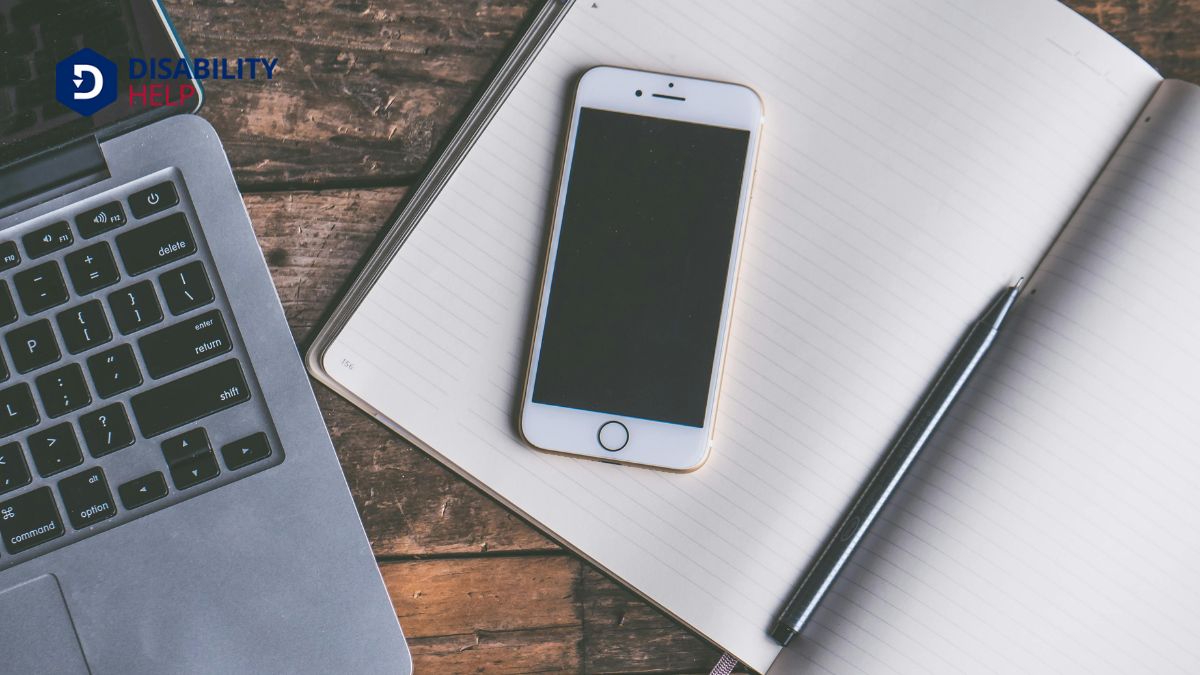When submitting a disability claim, we need several essential documents to guarantee approval. First, we should have our birth certificate and proof of citizenship handy. For veterans, military discharge papers (DD214) and service treatment records are critical. Accurate income documentation, such as W-2 forms, shows financial eligibility. Thorough medical records from all healthcare providers are essential for proving the severity of impairments. Witness statements from family or caregivers add a personal touch. Providing details like direct deposit information ensures smooth benefit delivery. To make sure you've covered all bases, let's explore each document's significance and specific requirements.
Key Takeaways
- Birth certificate or proof of citizenship to verify identity and eligibility.
- Medical records detailing the impairments and their impact on daily life.
- Military discharge papers (DD214) and service treatment records for veterans.
- Income documentation, such as W-2 forms or self-employment tax returns.
- Witness statements from family, friends, or caregivers outlining daily struggles.
Birth Certificate
Let's explore the significance of the birth certificate in the disability claim process. When we're applying for Social Security disability benefitsFinancial assistance provided to individuals who are unable to work due to a disability, such as Soc..., one of the first documents we'll need is our birth certificate. This essential piece of paper isn't just a formality; it plays a significant role in verifying our identity and age, both of which are important for determining our eligibility.
Having a birth certificate helps establish our legal status and eligibility for benefits. Without it, proving who we are and when we were born becomes a challenge, potentially delaying or even hindering our disability claim approval. Thankfully, photocopies of the birth certificate are generally accepted, making it easier for us to provide this key document without risking the original.
In the disability claim process, the birth certificate stands out as a primary document that confirms our identity. It's necessary to ensure that our application is complete and accurate. By providing a copy of our birth certificate, we're taking an important step toward securing the benefits we need.
Proof of Citizenship

When applying for disability benefits, proof of citizenship plays a crucial role in our application. We need to provide valid and verifiable documents to establish our eligibility. The most common forms of proof of citizenship include a birth certificate or a U.S. passport. These documents confirm our status as U.S. citizens, which is a fundamental requirement for disability claims.
For non-U.S. citizens, it's crucial to provide evidence of lawful alien status. This ensures that we meet the eligibility criteria set by the authorities. Typically, original documents are required for verification purposes, but in some cases, photocopies may also be accepted. It's important to check with the relevant agencyThe capacity of individuals with disabilities to act independently and make their own choices. to determine the acceptable forms of documentation.
Verification of citizenship isn't just a bureaucratic step; it's vital to guarantee that only eligible individuals receive disability benefits. This process helps maintain the integrity of the system and ensures that resources are allocated to those who genuinely qualify.
Military Discharge Papers
Let's discuss the significance of military discharge papers, like the DD214, when applying for disability benefits. These documents are important because they verify our service history and can greatly impact our eligibility. Having the original discharge papers ready can help expedite the approval process for our claims.
Importance of DD214
A veteran's DD214, commonly known as a military discharge paper, plays a pivotal role in the disability claim process. These documents confirm the details of a veteran's military service, including service dates, rank, and type of discharge. When we're applying for disability benefits, the DD214 is vital because it helps establish our eligibility for specific programs and benefits.
One of the key reasons the DD214 is so important is that it provides a concrete record of our military service. This is essential when paired with medical evidence to substantiate our disability claims. The DD214 verifies that we served, and under what conditions, which enhances the credibility of our application.
If we don't have a copy of our DD214, we can request one through the National Personnel Records Center. Having this document on hand ensures accurate verification of our service history, which is critical for a smooth and efficient claims process.
Verifying Service History
Checking service history is a cornerstone of a successful disability claim. Military discharge papers, like the DD214 or other separation documents, are necessary for this process. These papers provide crucial evidence of military service, including the dates we served, the type of discharge we received, and any awards or decorations we earned. Without these documents, establishing eligibility for benefits like VA disability compensation or Social Security disability benefits becomes notably harder.
In addition to discharge papers, service treatment records are often needed to draw a direct line between our military service and the impairments we currently face. These medical records offer essential evidence that can help substantiate our claims.
Submitting accurate and complete military discharge papers is pivotal in ensuring our disability claim is processed efficiently. When we provide these documents to support our claim, we help the Social Security Administration (SSA) or the Department of Veterans Affairs (VA)A U.S. government agency that provides services and benefits to military veterans, including those w... verify our service history quickly, expediting the approval process.
Understanding the importance of these documents and how they fit into our overall claim can make a considerable difference in the outcome. Let's make sure we gather all the necessary paperwork to support our disability claims effectively.
Income Documentation

Submitting precise income documentation is vital for the approval of a disability claim. When we apply for disability benefits, income documentation, such as W-2 forms or self-employment tax returns, plays a significant role in evaluating our financial eligibility. These documents help determine the level of financial support we might be entitled to receive. Without them, there's no clear picture of our financial situation.
Providing accurate income information guarantees that our claim is processed smoothly. If we fail to submit these documents, we risk significant delays or even denials of our claims. The Social Security Administration may request additional income verification to confirm the accuracy and completeness of our application, so it's important to have everything in order from the start.
We should keep detailed records of all our income sources and amounts. This practice not only streamlines the disability claims process but also helps us respond promptly if additional information is requested. Remember, our goal is to present a clear and precise financial picture to support our claim. By staying organized and thorough with our income documentation, we can help facilitate a more efficient approval process for our disability benefits.
Medical Records
Let's talk about why medical records are so important for disability claims.
We need detailed medical evidence from trusted sources to prove our impairments and their impact on our daily lives.
Gathering and submitting this evidence is our responsibility, and it's essential for the SSA to assess the severity of our conditions accurately.
Importance of Documentation
When it comes to getting a disability claim approved, having thorough documentation, especially medical records, is key. We can't stress enough how essential these records are in providing the necessary evidence of our impairments. They serve as the backbone of our claim, detailing the severity and impact of our conditions.
Medical records from acceptable sources give us objective evidence needed to establish the extent of our impairments. It's our responsibility to gather and submit this medical evidence. This includes everything from doctor's reports and test results to specialist statements. These documents collectively paint a detailed picture of our health status.
Having detailed medical records is crucial because they help assess how our impairments affect our ability to work. Every piece of medical evidence we provide is carefully considered during the evaluation process.
Without thorough documentation, proving the severity of our condition becomes challenging, and the likelihood of claim approval diminishes.
Types of Medical Evidence
Among the various types of medical evidence crucial for a disability claim, medical records stand out as the most thorough and detailed. These records include doctor statements, test results, and treatment histories, all of which provide an in-depth view of our impairments. To guarantee a successful disability claim, it's crucial that we gather extensive medical evidence from acceptable sources.
Objective medical evidence is key to establishing the severity of our impairments. This means that our medical records need to contain clear, unbiased information from professionals who've evaluated and treated us. Detailed reports from treating physicians are particularly valuable as they offer insights into our ongoing medical conditions and treatments.
We, as claimants, bear the responsibility of providing this detailed medical evidence. Every piece of information, from lab results to diagnostic tests, helps paint a complete picture of our health status. Importantly, nonmedical sources can also contribute valuable perspectives that may support our case.
Obtaining Medical Records

Securing our medical records is a fundamental step in the disability claim process. These records are vital for obtaining disability claim approval because they provide detailed medical evidence of our impairments. Without this objective medical evidence from acceptable sources, our claim mightn't be successful.
When we set out to gather our medical records, we need to make sure we collect detailed documentation from all healthcare providers we've seen. This evidence should include diagnosis, treatment history, and any medical tests or procedures related to our condition.
It's important to have records from doctors, hospitals, and clinics that clearly outline the severity and limitations caused by our impairments.
The Social Security Administration (SSA) can assist us in obtaining these medical records from our sources, which can be a significant help in streamlining the process. It's noteworthy that the SSA considers all evidence, both medical and non-medical, when evaluating our impairments.
Thus, providing thorough and accurate medical records strengthens our case.
Additional Benefits Information
Traveling through the landscape of disability benefits can be overwhelming, but having a clear understanding of additional benefits information can make the process smoother.
It's vital to know that payments from sources such as Worker's Compensation, Black Lung Benefits, and Civil Service Retirement are accepted when you file for disability. The benefits you receive need to be documented accurately to guarantee your claim is processed without delays.
When submitting your claim, some documents can be photocopies, but certain original documents are required for verification purposes. Having these ready will speed up your application. If any documents are missing, assistance is available to help you obtain them, which can be a huge relief in this intricate process.
Moreover, when setting up Direct Deposit for your disability benefits, make sure to have your checkbook handy. This will ensure that your payments are correctly deposited into your account without any issues. Understanding these steps and having the right documents will make traversing the disability claims process much less intimidating.
Service Treatment Records
Service treatment records, often known as STRs, are essential for veterans seeking disability claim approval. These records document the medical treatment you received during your military service. They provide comprehensive evidence of injuries, illnesses, and conditions that may qualify for disability benefits. Here's why STRs are vital:
- Evidence of Medical History: STRs detail every visit to a military doctor, including diagnoses, treatments, and follow-ups. This detailed medical history is necessary for your Security Disability InsuranceA form of insurance that provides income to individuals who are unable to work due to a disability. claim.
- Establish Service Connection: These records help establish a direct connection between your military service and your current impairments. Without STRs, proving that your condition is service-related can be challenging.
- Support Doctors' Reports: When you apply for disability benefits, doctors' reports will be more credible if they align with your STRs. This alignment strengthens your case and improves your chances of approval.
- Verification of Incidents: STRs can verify specific incidents that led to your disability, whether it's a physical injury or a mental health condition. This verification is essential for substantiating your claim.
When applying for disability benefits, make sure you have copies of your service treatment records. They serve as the foundation for demonstrating the link between your military service and your current health conditions.
Understanding the significance of STRs can make a notable difference in the success of your disability claim.
Witness Statements
While service treatment records lay the foundation for your disability claim, witness statements can provide an invaluable personal perspective on your daily struggles. These statements can offer detailed, specific accounts of how your impairments affect your daily activities, shedding light on the true extent of your limitations.
Witness statements from family members, friends, or caregivers are particularly valuable as they often observe your condition and limitations firsthand. By including their observations, you paint a clearer picture of the challenges you face.
For instance, a caregiver might describe how your physical limitations make routine tasks, like cooking or dressing, exceedingly difficult. A friend might recount instances where your condition prevented you from participating in social activities.
When writing these statements, it's essential they're detailed and specific. General comments won't be as impactful as precise examples of your struggles. These testimonies can support medical evidence, helping to establish the seriousness of your impairments for disability benefits.
Incorporating witness statements in your application not only strengthens your case but also provides a broader perspective on your disability. By including these personal accounts, we can guarantee that decision-makers fully understand the depth of your condition.
Direct Deposit Details

Direct Deposit is the most secure and convenient way to receive your disability benefits payments. By choosing Direct Deposit, we eliminate the risk of lost or stolen checks and guarantee timely access to our funds. The Social Security Administration (SSA) strongly prefers this method for disbursing disability benefits, making it an essential step in our application process.
To set up Direct Deposit, we'll need to provide our bank account information. Here's what we need to do:
- Gather Bank Details: Make sure we've our bank's routing number and our account number. These can be found on a check or by contacting our bank.
- Choose Account Type: Decide whether we want the benefits deposited into a checking or savings account.
- Complete the Form: During the disability benefits application process, we'll be prompted to enter our Direct Deposit information. Double-check for accuracy.
- Confirm Setup: After submitting the information, the SSA will verify that our Direct Deposit is set up correctly.
Frequently Asked Questions
What Proof Do You Need to Show That You Are Disabled?
We need medical evidence like doctor statements, test results, and detailed records of our impairments. Additionally, we should provide documents that show how our disability affects our work ability, plus other supporting documents to avoid delays or denials.
What Qualifies for Automatic Approval on Disability?
We qualify for automatic approval on disability if we have conditions like advanced cancer, total blindness, or ALS. These are listed in the SSA's "Blue Book," and meeting their criteria can expedite our claim process.
What Evidence Do You Need for Social Security Benefits?
We need solid medical evidence, proof of income, a birth certificate, and details about other benefits. Accurately completing the adult disability form is vital. Let's make sure we gather everything to strengthen our claim for social security benefits.
What Is the Most Commonly Approved Disability?
We often see that musculoskeletal system disorders, like back pain and arthritisInflammation of the joints, leading to pain, stiffness, and limited movement., are the most commonly approved disabilities. They're followed closely by mental health conditions, respiratory disorders, circulatory system disorders, and neurological disorders.
Conclusion
We've covered the essential documents you need for your disability claim approval. By having your birth certificate, proof of citizenship, military discharge papers, income documentation, medical records, additional benefits information, service treatment records, witness statements, and direct deposit details ready, you'll streamline the process. Don't forget to double-check everything to guarantee completeness. We're here to support you through this journey, so gather these documents and take the next step toward securing the benefits you deserve.





